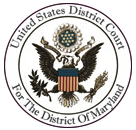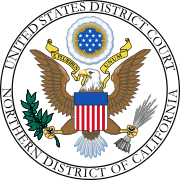
The Foreign Intelligence Surveillance Act of 1978 is a United States federal law that establishes procedures for the surveillance and collection of foreign intelligence on domestic soil.
The state secrets privilege is an evidentiary rule created by United States legal precedent. Application of the privilege results in exclusion of evidence from a legal case based solely on affidavits submitted by the government stating that court proceedings might disclose sensitive information which might endanger national security. United States v. Reynolds, which involved alleged military secrets, was the first case that saw formal recognition of the privilege.

NSA warrantless surveillance — also commonly referred to as "warrantless-wiretapping" or "-wiretaps" — was the surveillance of persons within the United States, including U.S. citizens, during the collection of notionally foreign intelligence by the National Security Agency (NSA) as part of the Terrorist Surveillance Program. In late 2001, the NSA was authorized to monitor, without obtaining a FISA warrant, phone calls, Internet activities, text messages and other forms of communication involving any party believed by the NSA to be outside the U.S., even if the other end of the communication lays within the U.S.

American Civil Liberties Union v. National Security Agency, 493 F.3d 644, is a case decided July 6, 2007, in which the United States Court of Appeals for the Sixth Circuit held that the plaintiffs in the case did not have standing to bring the suit against the National Security Agency (NSA), because they could not present evidence that they were the targets of the so-called "Terrorist Surveillance Program" (TSP).

The Terrorist Surveillance Program was an electronic surveillance program implemented by the National Security Agency (NSA) of the United States in the wake of the September 11, 2001 attacks. It was part of the President's Surveillance Program, which was in turn conducted under the overall umbrella of the War on Terrorism. The NSA, a signals intelligence agency, implemented the program to intercept al Qaeda communications overseas where at least one party is not a U.S. person. In 2005, The New York Times disclosed that technical glitches resulted in some of the intercepts including communications which were "purely domestic" in nature, igniting the NSA warrantless surveillance controversy. Later works, such as James Bamford's The Shadow Factory, described how the nature of the domestic surveillance was much, much more widespread than initially disclosed. In a 2011 New Yorker article, former NSA employee Bill Binney said that his colleagues told him that the NSA had begun storing billing and phone records from "everyone in the country."

MAINWAY is a database maintained by the United States' National Security Agency (NSA) containing metadata for hundreds of billions of telephone calls made through the largest telephone carriers in the United States, including AT&T, Verizon, and T-Mobile.
Warrantless searches are searches and seizures conducted without court-issued search warrants.

The Protect America Act of 2007 (PAA),, is a controversial amendment to the Foreign Intelligence Surveillance Act (FISA) that was signed into law by U.S. President George W. Bush on August 5, 2007. It removed the warrant requirement for government surveillance of foreign intelligence targets "reasonably believed" to be outside the United States. The FISA Amendments Act of 2008 reauthorized many provisions of the Protect America Act in Title VII of FISA.

The FISA Amendments Act of 2008, also called the FAA and Foreign Intelligence Surveillance Act of 1978 Amendments Act of 2008, is an Act of Congress that amended the Foreign Intelligence Surveillance Act. It has been used as the legal basis for surveillance programs disclosed by Edward Snowden in 2013, including PRISM.

EPIC v. Department of Justice is a 2014 case in the United States District Court for the District of Columbia between the Electronic Privacy Information Center (EPIC) and the U.S. Department of Justice (DOJ) where EPIC seeks court action to enforce their Freedom of Information Act request for documents that the Department of Justice has withheld pertaining to George W. Bush's authorization of NSA warrantless surveillance.

Al-Haramain v. Obama, 690 F.3d 1089 was a case before the U.S. District Court for the Northern District of California filed 28 February 2006 by the al-Haramain Foundation and its two attorneys concerning the NSA warrantless surveillance controversy. The case withstood retroactive changes brought by the Congressional response to the NSA warrantless surveillance program.

Jewel v. National Security Agency, 673 F.3d 902, was a class action lawsuit argued before the District Court for the Northern District of California and the Court of Appeals for the Ninth Circuit, filed by Electronic Frontier Foundation (EFF) on behalf of American citizens who believed that they had been surveilled by the National Security Agency (NSA) without a warrant. The EFF alleged that the NSA's surveillance program was an "illegal and unconstitutional program of dragnet communications surveillance" and claimed violations of the Fourth Amendment.
Clapper v. Amnesty International USA, 568 U.S. 398 (2013), was a United States Supreme Court case in which the Court held that Amnesty International USA and others lacked standing to challenge 50 U.S.C. § 1881a of the Foreign Intelligence Surveillance Act as amended by the Foreign Intelligence Surveillance Act of 1978 Amendments Act of 2008.

The FISA Improvements Act is a proposed act by Senator Dianne Feinstein, Chair of the Senate Intelligence Committee. Prompted by the disclosure of NSA surveillance by Edward Snowden, it would establish the surveillance program as legal, but impose some limitations on availability of the data. Opponents say the bill would codify warrantless access to many communications of American citizens for use by domestic law enforcement.

Proposed reforms of mass surveillance by the United States are a collection of diverse proposals offered in response to the Global surveillance disclosures of 2013.

Klayman v. Obama, 957 F.Supp.2d 1, was a decision by the United States District Court for District of Columbia finding that the National Security Agency's (NSA) bulk phone metadata collection program was unconstitutional under the Fourth Amendment. The ruling was later overturned on jurisdictional grounds, leaving the constitutional implications of NSA surveillance unaddressed.

American Civil Liberties Union v. Clapper, 785 F.3d 787, was a lawsuit by the American Civil Liberties Union (ACLU) and its affiliate, the New York Civil Liberties Union, against the United States federal government as represented by then-Director of National Intelligence James Clapper. The ACLU challenged the legality and constitutionality of the National Security Agency's (NSA) bulk phone metadata collection program.

Litigation over global surveillance has occurred in multiple jurisdictions since the global surveillance disclosures of 2013.

Wikimedia Foundation, et al. v. National Security Agency, et al. is a lawsuit filed by the American Civil Liberties Union (ACLU) on behalf of the Wikimedia Foundation and several other organizations against the National Security Agency (NSA), the United States Department of Justice (DOJ), and other named individuals, alleging mass surveillance of Wikipedia users carried out by the NSA. The suit claims the surveillance system, which NSA calls "Upstream", breaches the First Amendment to the United States Constitution, which protects freedom of speech, and the Fourth Amendment to the United States Constitution, which prohibits unreasonable searches and seizures.












